Books, articles and others publications

It is necessary to balance, on the one hand, the interest in criminal prosecution and the strict administration of justice, and, on the other, the survival of the business entity.
Consultor Jurídico | 7 Mai 2020
Fernanda Tórtima, Pierpaolo Cruz Bottini e Walfrido Warde
Crimes defined in the Penal Code that are particularly relevant in the severe context of a pandemic, although intended to protect legal interests as fundamental as life and health, require the fulfillment of various specific elements for their characterization, which, in practice, limit their applicability.
Consultor Jurídico | 10 Abr 2020
André Galvão e Felipe Maranhão
Valor Econômico | 28 Ago 2019
Fernanda Tórtima e Fabricio Dantas
Valor Econômico | 28 Dez 2018
Fernanda Tórtima e Fabricio Dantas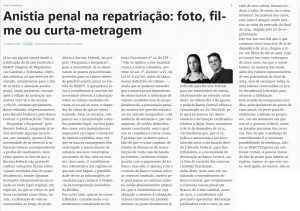
A few months have passed since the enactment of the law establishing the RERCT (Regime of Exchange and Tax Regularization). Yet, doubts persist regarding what must be declared, especially to secure the sought-after criminal amnesty, even after the publication of regulatory guidelines like Normative Instruction 1627/16 by the Federal Revenue Service and Circular 3.787/16 by […]
Valor Econômico | 16 Ago 2016
Fernanda Tórtima e Fabricio Dantas
The Operation Car Wash (Operação Lava-Jato) revolutionized the standards of criminal investigation in Brazil and brought forth a new generation of criminal lawyers, shifting the spotlight away from the old guard, primarily represented by the names that took the stage during the Mensalão trial. The most recent high-profile episode of Operation Car Wash involved a plea bargain negotiated by attorney Fernanda Tórtima.
Valor Econômico | Jul 2016
Fernanda Tórtima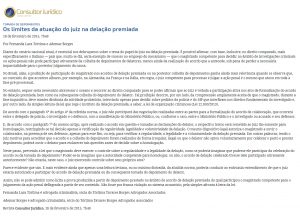
Given the current national context, it is essential to reflect on the role of judges in plea bargaining. Based on comparative law, particularly the Italian system—which is often cited as a successful example of using this mechanism—it is clear that the judge responsible for deciding in the context of criminal investigations or prosecutions must not […]
Revista Consultor Jurídico | 18 Fev 2015
Fernanda Lara Tórtima e Ademar Borges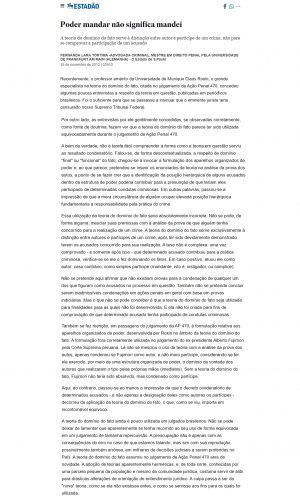
Recently, Claus Roxin, the emeritus professor at the University of Munich and the foremost expert on the theory of control over the act, which was cited during the trial of Criminal Case 470, granted a few interviews on the topic to Brazilian publications. This was enough to spark suggestions that the eminent jurist had censured […]
O Estado de S.Paulo | 18 Nov 2012
Fernanda Lara Tórtima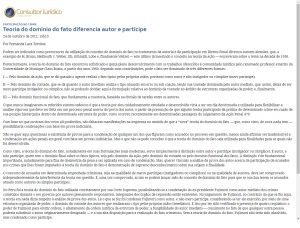
The use of the concept of control over the act to distinguish between principal and accomplice in criminal law was pioneered by several German authors, including H. Bruns, Hellmuth v. Weber, Eb. Schmidt, Lobe, and eventually Welzel. In the 1930s, Welzel incorporated the concept into action theory. Later, the theory of control over the act […]
Revista Consultor Jurídico | 24 Out 2012
Fernanda Lara Tórtima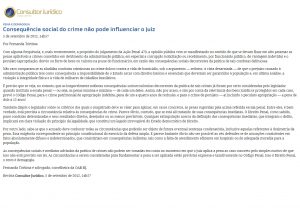
Frequently, and more recently in the context of the trial of Criminal Action 470, public opinion has argued that sentences for crimes against public administration—especially corruption (solicitation or receipt of undue advantages by public officials) and embezzlement (misappropriation, diversion, or theft of assets or funds in the possession of a public official)—should be set at […]
Revista Consultor Jurídico | 05 Set 2012
Fernanda Lara Tórtima